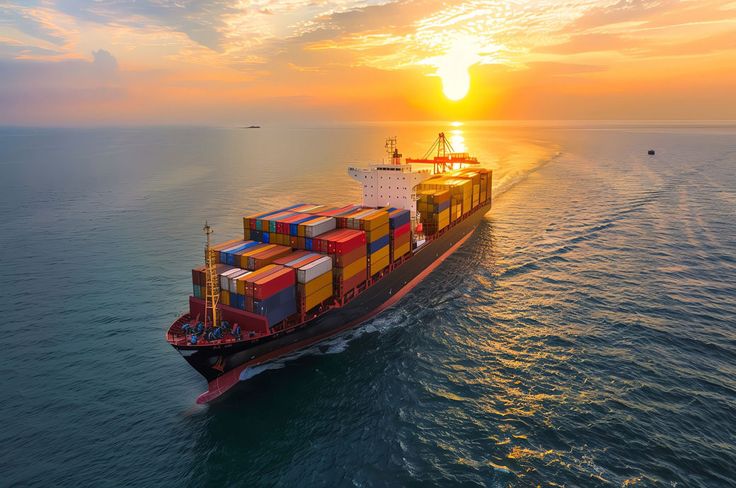Table of Contents
China is the world’s largest exporter, supplying everything from electronics to textiles, machinery, and furniture. While importing from China opens doors to competitive pricing and global growth, the process is filled with challenges: customs regulations, hidden costs, shipping delays, and supplier risks.
This is why agents for importing goods from China have become essential for businesses. They serve as trusted partners, handling supplier verification, freight negotiations, customs paperwork, and end-to-end logistics management. In this guide, we’ll explore how these agents add value, the shipping options they manage, and how to select the right one for your business.

Why Businesses Hire Import Agents in China
Agents do more than just book shipping—they simplify complex supply chains.
Key benefits include:
- Supplier Verification: Ensure factories meet standards, certifications, and capacity.
- Better Freight Rates: Agents negotiate with multiple carriers to secure discounts.
- Compliance Assurance: They prepare accurate customs documentation.
- Door-to-Door Coordination: From the factory in China to your warehouse.
👉 Without an agent, businesses risk higher costs, delivery delays, and compliance issues.
How to Choose Reliable Agents for Importing Goods from China
Not all agents are equal. Selecting the wrong one can result in hidden costs, lost cargo, or customs penalties.
Checklist for choosing the right agent:
✅Proven track record in international trade.
✅ Transparent pricing, no hidden surcharges.
✅ Strong networks in major Chinese ports (Shenzhen, Guangzhou, Shanghai, Ningbo).
✅ Ability to handle multiple transport modes: sea, air, and rail.
✅ Client references and case studies in your industry.
💡 Pro Tip: Reputable agents often partner with freight forwarders and customs brokers to deliver seamless services.
Sea Freight with Agents: Cost-Effective but Slower
Sea freight remains the backbone of China’s global exports. For businesses with large shipments, it’s the most cost-effective choice.
| Service Type | Ideal For | Transit Time | Approximate Cost |
|---|---|---|---|
| FCL (Full Container Load) | Large volume | 25–35 days | $3,000–$5,000 (40ft container) |
| LCL (Less than Container Load) | Small shipments | 30–40 days | $80–$150 per CBM |
How agents help with sea freight:
- They consolidate cargo to optimize LCL costs.
- They negotiate with carriers for better FCL rates.
- They monitor port operations to avoid storage penalties.
When to choose sea freight:
- Large, heavy, or non-urgent goods.
- Commodities like furniture, textiles, or industrial parts.
Air Freight with Agents: Speed for Urgent Shipments
Air freight is the fastest but costliest shipping method. With an agent, you can find the balance between urgency and budget.
Types of air freight:
- Express Air Freight (3–7 days): Best for urgent deliveries.
- Standard Air Freight (7–12 days): Balanced cost-speed ratio.
- Air Consolidation: Small shipments grouped together for lower costs.
Example: A 200 kg shipment from Guangzhou → New York costs $1,500–$2,000, but an agent’s negotiation can cut this by up to 15%.
Best for: Electronics, fashion, seasonal goods, or product launches.
Rail Freight from China to Europe: The Middle Option
Thanks to the Belt and Road Initiative, rail freight is an attractive mid-point between air and sea.
| Factor | Sea Freight | Rail Freight | Air Freight |
|---|---|---|---|
| Transit Time | 25–40 days | 18–25 days | 3–12 days |
| Cost | Lowest | Mid-range | Highest |
| Eco Impact | Moderate | Lowest | Highest |
How agents support rail shipments:
- Navigate multiple customs checkpoints.
- Handle transloading where track gauges differ.
- Provide cargo tracking across borders.
Best for: Medium-volume shipments where cost and time must be balanced.
Customs Documentation Handled by Agents
One of the biggest risks in importing is incorrect paperwork. Agents manage all customs requirements:
- Commercial Invoice – details transaction value.
- Packing List – itemized description of goods.
- Bill of Lading (B/L) or Air Waybill (AWB) – proof of transport.
- Certificate of Origin – required for trade agreements.
- Import Licenses & Permits – for regulated products.
📌 Stat: Importers using agents experience 40% fewer customs delays compared to self-managed shipments.
Reducing Import Risks with Chinese Agents
Agents shield you from three major risks:
1⃣️ Supplier Risk
- Verify legitimacy through audits.
- Ensure quality standards (ISO, CE, FDA).
- Negotiate favorable Incoterms (FOB, CIF, DDP).
2⃣️Logistics Risk
- Provide cargo insurance.
- Arrange pre-clearance to avoid demurrage.
- Offer real-time shipment tracking.
3⃣️Financial Risk
- Transparent freight charges.
- Accurate duty/tax calculation.
- Avoid surprise penalties.
Cost Savings: Why Agents Pay for Themselves
Hiring an agent is an investment that often leads to savings.
How agents save costs:
- Freight negotiations lower shipping rates.
- Consolidation reduces small-shipment expenses.
- Avoidance of penalties like detention and demurrage.
- Accurate customs filing prevents overpayment.
Case Study:
A small business importing electronics saved 12% in logistics costs by letting an agent consolidate LCL cargo and negotiate with airlines.
End-to-End Logistics: One Agent, Full Control
A strong import agent eliminates the need to juggle multiple providers.
Process handled by one agent:
- Pickup from supplier’s factory.
- Export customs clearance in China.
- International transport (sea/air/rail).
- Import clearance at destination.
- Delivery to warehouse/retail center.
Why this matters:
- One point of contact.
- Better visibility across the supply chain.
- Fewer errors and delays.
Conclusion
Importing from China is a huge opportunity—but also a challenge. By working with agents for importing goods from China, businesses gain reliable logistics, cost savings, and full compliance with international trade laws. Whether it’s sea freight for bulk, air freight for speed, or rail for balance, the right agent ensures your supply chain runs smoothly.
Request a Quote
Need a tailored solution for your shipping from China?
Let TJ China Freight Forwarder assist you with reliable, cost-effective service.
FAQ
Q1.How much do agents for importing goods from China charge?
Typically 5–10% of shipment value or a fixed service fee.
Q2.Can agents reduce sea freight costs for small businesses?
Yes—through LCL consolidation, lowering costs per unit.
Q3.Do I still need an agent if my supplier offers shipping?
Yes. Suppliers represent themselves, while agents represent your interests.
Q4.How long does air freight take with an agent?
3–7 days (express) or 7–12 days (standard).
Q5.What documents do import agents handle?
Invoices, packing lists, Bill of Lading, customs declarations, and permits.



